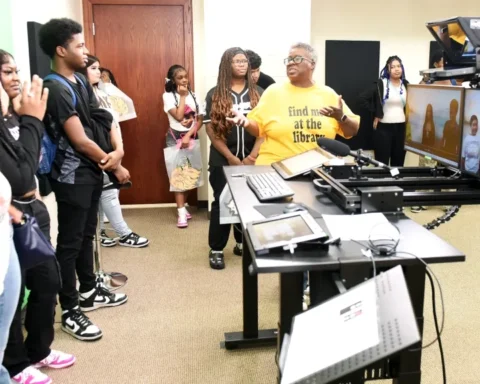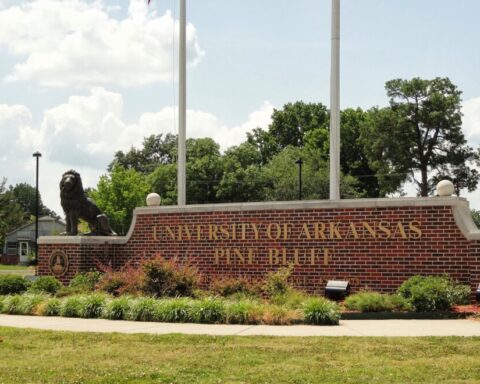By Will Hehemann
New non-thesis graduate degree programs in agricultural regulations and aquaculture and fisheries will be offered in the fall semester at the University of Arkansas at Pine Bluff School of Agriculture, Fisheries and Human Sciences, Dr. Bruce W. McGowan, interim dean/director for the School, said.
“We are excited to offer students this opportunity to earn graduate degrees in these competitive fields,” he said. “The fact that these are non-thesis programs means students will not be required to write a thesis paper. Instead of focusing on research, these programs will primarily emphasize practical application and training. Equipped with the advanced degree plus firsthand experience, graduates will be in a great position to find well-paying jobs.”
Students who enroll in the non-thesis graduate degree program in aquaculture and fisheries will choose to focus in either aquaculture or fisheries.
“The overall goal of the non-thesis master’s degree in aquaculture/fisheries is to provide more focused, practical and hands-on training opportunities that will prepare students for the workforce,” Dr. Lin Xie, coordinator for the aquaculture/fisheries graduate programs, said. “The program will include special topics that cover practical skills and training as opposed to a thesis.”
Dr. Xie said students entering the aquaculture/fisheries program must complete 36 total credit hours to earn the degree. A final written report on program projects will be required, and students will present their final project findings in graduate seminar.
The non-thesis graduate degree program in agricultural regulations will be offered with three options: plant and animal systems, food safety, and agricultural policy and economic risk, Dr. Shahidul Islam, coordinator for the agricultural regulations graduate programs, said.
The program consists of 36 to 42 credit hours, depending on the track chosen, he said. The core coursework consists of 25 credit hours, including one credit hour of special projects presentation under the agricultural and environmental regulatory practices seminar and two credit hours of scientific writing and editing in agriculture.
“Special projects will cover practical skills, knowledge and professional development training,” Dr. Islam said. “Students will be required to complete a final written report on a selected topic and present their findings in an oral presentation.”
Students must complete all the requirements (coursework, the final project and special topics/seminar) for the non-thesis degree program they are enrolled in within six calendar years from the date of initial enrollment.
For more information on graduate programs in aquaculture and fisheries, email Dr. Xie at xiel@uapb.edu. For more information on graduate programs in agricultural regulations, email Dr. Islam at islams@uapb.edu.
The University of Arkansas at Pine Bluff offers all its Extension and Research programs and services without regard to race, color, sex, gender identity, sexual orientation, national origin, religion, age, disability, marital or veteran status, genetic information, or any other legally protected status, and is an Affirmative Action/Equal Opportunity Employer.





